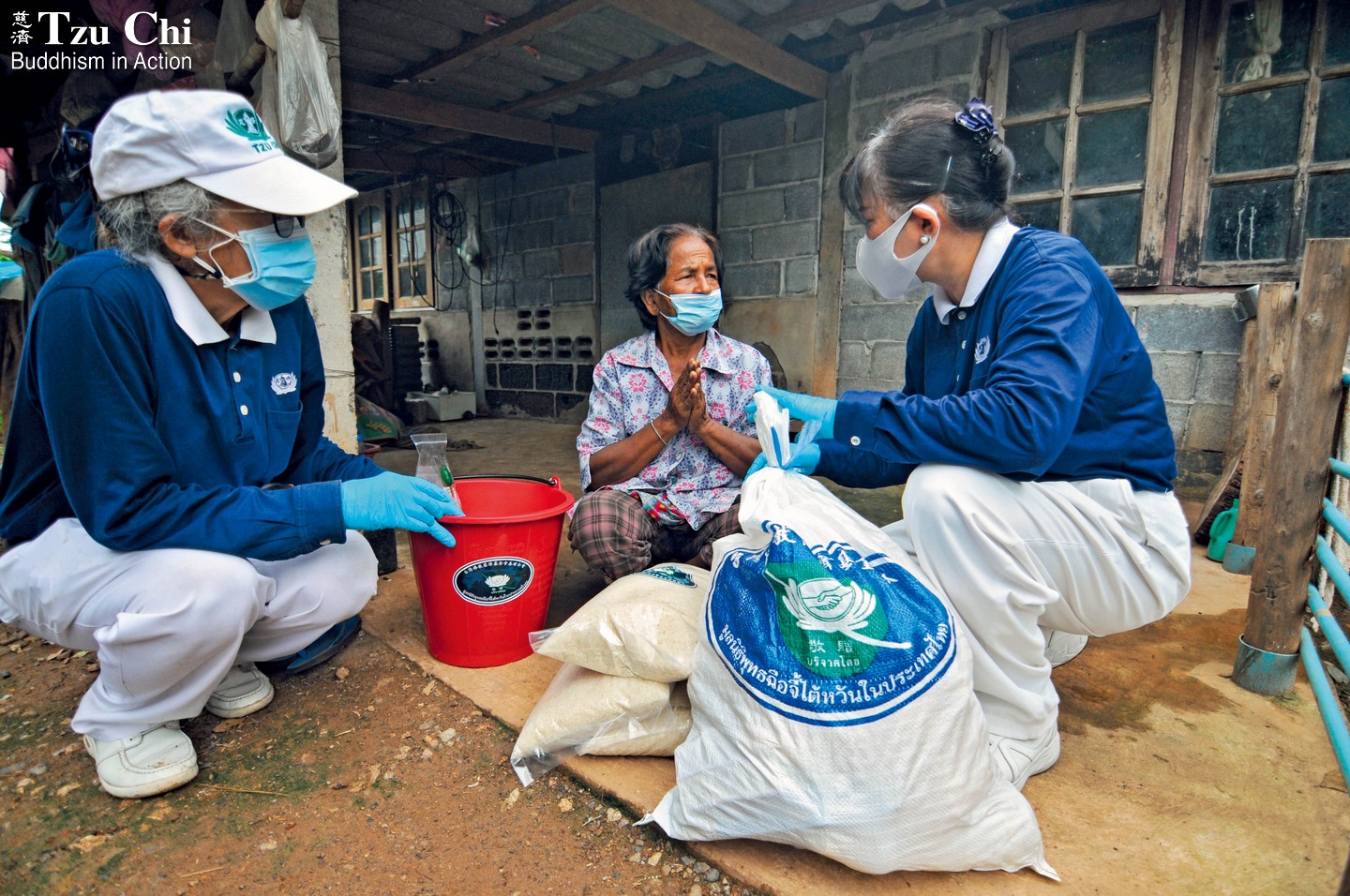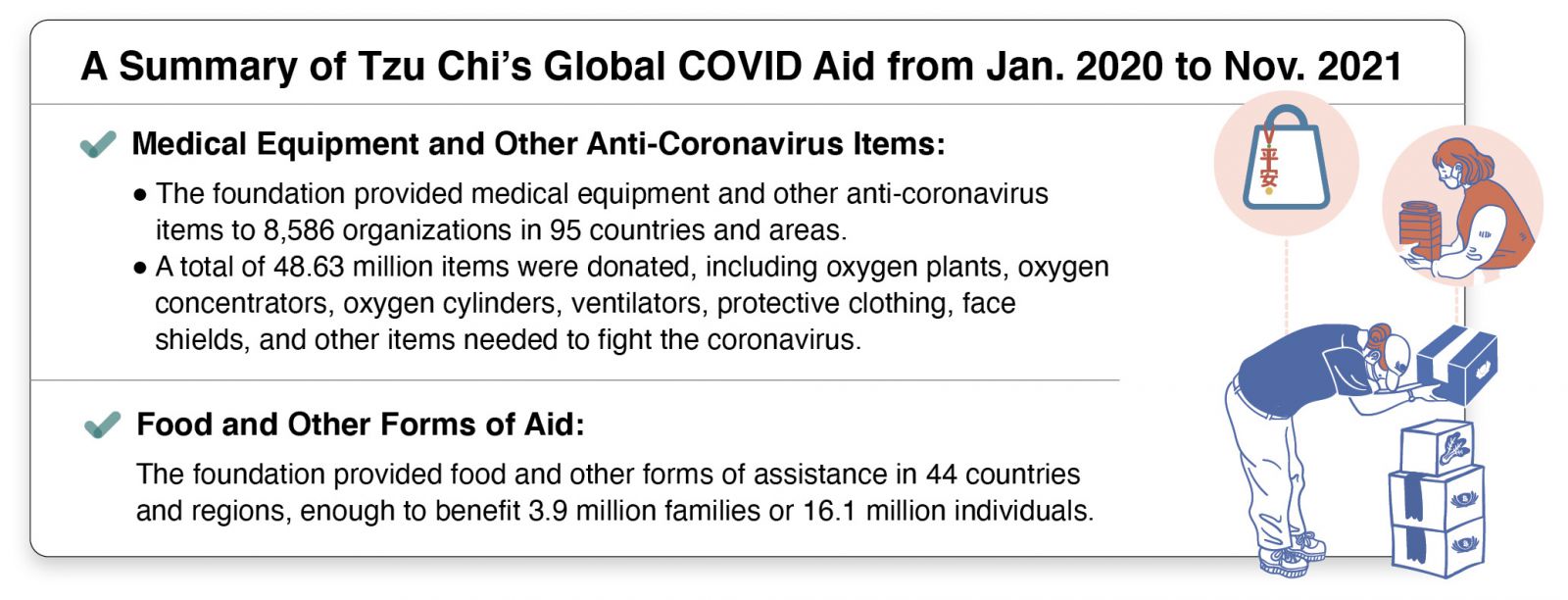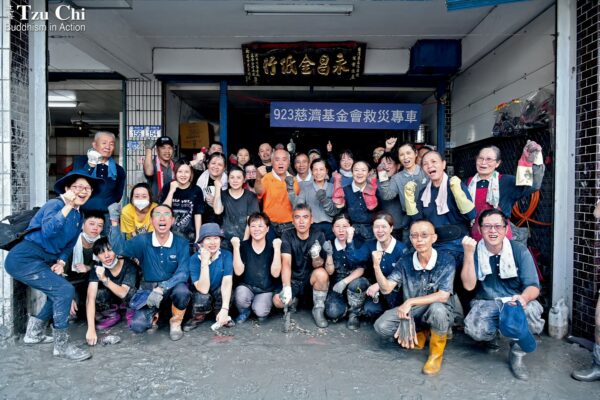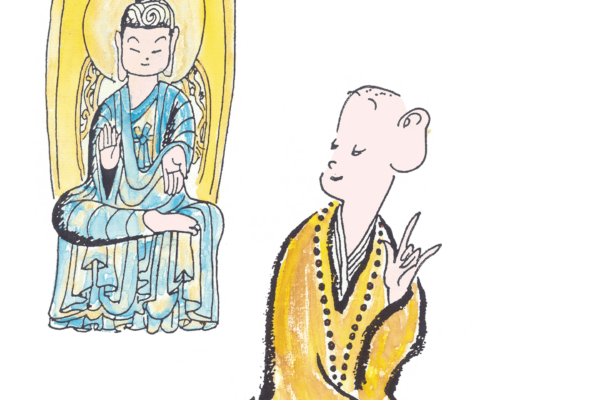Compiled by Yan Wan-ting
Translated by Wu Hsiao-ting
Over 5.2 million people around the world had succumbed to COVID-19 by early December 2021. Despite vaccinations, breakthrough infections continued to put people at significant risk for infection. Even so, more and more countries decided to pivot in their response to the pandemic. Instead of eradicating the virus, they took the stance of learning to live with it. They lifted lockdowns, reopened borders, and eased travel rules to boost their economies. At the same time, Tzu Chi volunteers around the world continued to monitor the pandemic in their countries and offer help to the vulnerable. In addition to the challenges presented by the pandemic, 2021 saw our world beset by one natural disaster after another. Overcoming difficulties created by COVID-19, volunteers reached out to those affected, using their actions to show the less fortunate: “You’re not alone.”

In September 2021, tropical storm Dianmu triggered the worst flooding to hit low-lying regions in Lopburi Province, Thailand, in 20 years. Tzu Chi volunteers distributed food and cleaning implements to victims in three districts in October. Natthaya Thanatkittiphong
Saving Lives Is As Urgent As Fighting Fires
Tzu Chi has provided aid in 126 countries and regions since it was founded, 24 of which were added in the last two years as a result of the pandemic. There were not even Tzu Chi volunteers in most of those new countries or regions. How did the foundation manage to overcome such a lack of manpower and get help to those in need amidst lockdowns and closed borders?
The novel coronavirus started spreading across the globe in early 2020, sparing no corner of the globe and impacting every economy in its path. The rollout of vaccines a year after the infection started brought a glimmer of hope that the end of the pandemic was in sight. But months later, in April 2021, the pandemic hit a new peak. Twenty million new cases were diagnosed in 30 days, over 900,000 of them in a single day, April 23. One third of those new infections were reported in India.
India had been among the countries hit the hardest by the infection since it had started sweeping the globe. The situation there was brought under control for a time, thanks to the government’s strict disease control measures, but daily case numbers began to rise sharply in March 2021 as restrictions were eased and as political and religious events brought out large crowds. More than six million cases were diagnosed and 45,000 people died in April alone. The rapid surge in confirmed cases overwhelmed the country’s healthcare system. Hospital beds, medications, and ventilators were in severe short supply. Many of those who died perished as a result of a short supply of oxygen. Families scrambled to buy oxygen cylinders on the black market for their loved ones. The news coming from India made the hearts of people around the world wrench in pain and sorrow.
A number of countries in Southeast Asia saw a resurgence of confirmed cases around the same time. One of the contributing factors was the rise of the highly transmissible Delta variant. Malaysia, Indonesia, and the Philippines were among the countries that experienced a resurgence. In response, Tzu Chi donated medical supplies, helped with vaccination programs, and provided food relief to the underprivileged in these countries.
At the same time, Tzu Chi launched an aid program dedicated to helping people in seven countries in South and Southeast Asia suffering because of the pandemic. These seven countries were India and nearby countries, including Nepal, Sri Lanka, Cambodia, Bangladesh, Bhutan, and Laos. Food was purchased locally to distribute to the needy to help them through this difficult time. To address shortages, medical equipment and supplies were donated to healthcare institutions.
Among the medical equipment donated, oxygen plants, designed to generate oxygen, were the most special items. Tzu Chi had never donated such equipment before, but foundation personnel discovered that the equipment was badly needed after conferring with health authorities, medical institutions, and charity organizations in India and Nepal. Because hospitals were struggling with a short oxygen supply, the foundation decided to purchase and donate the equipment to hospitals in India and Nepal to help them better care for patients. Life is precious. As the Chinese saying goes, “Saving lives is as urgent as fighting fires.”
Donating the oxygen plants required planning and coordination. The amount of medical oxygen each hospital needed was different, and there were also installation requirements to consider. To ensure that the equipment donated really met the needs of the beneficiary hospitals, Tzu Chi headquarters in Hualien formed a team to handle the purchase of the oxygen plants. The team enlisted the help of experts and reviewed product specifications such as the make, model number, storage capacity, and other technical details to make final decisions. Finally, they arranged for flights to transport the equipment.
In 2020, Tzu Chi worked with 12 organizations in India to help people financially impacted by COVID-19. The organizations that partnered with Tzu Chi included ABM Samaj Prabodhan Sanstha (a Buddhist non-profit), the Camillians (a Roman Catholic missionary order based in Italy), the Missionaries of Charity (a Catholic religious congregation established by Mother Teresa), and several Tibetan Buddhist monasteries. A total of 140,000 food packages were distributed to needy families as a result of this cooperation. When the pandemic took a turn for the worse in India in April 2021, Tzu Chi continued to work with these partners and other like-minded people to distribute more aid. All told, more than 329 organizations spread across India received aid from Tzu Chi during this time.
Simon Shyong (熊士民), deputy CEO of the Tzu Chi charity mission, led a team to organize the foundation’s COVID support. It was a mission riddled with challenges, whether it be from purchasing the aid, transporting it, or getting it delivered. The deputy CEO recalled that when the coronavirus first broke out in China, catching everyone off guard, Tzu Chi quickly obtained personal protective equipment and other anti-coronavirus supplies in other countries and sent them to areas hit hard by the infection to help China combat the disease. Later, in March 2020, when other countries began to experience a surge in cases, the foundation once again jumped into action to prepare and donate needed supplies to those countries. When COVID variants started appearing in September 2020, Tzu Chi took preemptive action and warehoused anti-coronavirus supplies in countries across several continents to extend a helping hand as quickly as possible. When the pandemic accelerated in Asia in April 2021, the items donated by the foundation included specialized medical equipment. Over the course of the pandemic, Tzu Chi has donated more than 10,000 oxygen concentrators alone.
Since its founding in 1966, Tzu Chi has provided assistance to 126 countries and areas, 24 of which were newly added in the last two years as a result of the pandemic. There were no Tzu Chi volunteers in most of those new countries. How did the foundation manage to get relief to those in need in those countries amidst lockdowns and closed borders? Simon Shyong explained they acted on Dharma Master Cheng Yen’s instructions: they had sought out people and organizations that could help Tzu Chi get its assistance to the needy in those countries. There was no challenge too big when everyone combined their resources and worked together. Technology had come in very handy in the process too, enabling Tzu Chi personnel to meet partnering individuals or organizations online to talk things over and arrange related matters.
By adapting to changing circumstances, proactively seeking opportunities to help, and partnering with like-minded organizations—even if they espoused different religious beliefs than Buddhism—Tzu Chi was able to reach and help people the world over.




